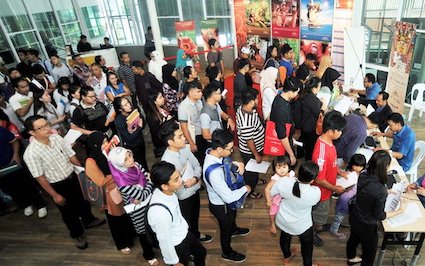Overseas Malaysians return for family but struggle with pay, survey shows

(FMT) – A new study by recruitment firm Hays Asia shows that Malaysians who have studied or worked overseas and return home generally do so in order to be closer to their families although they are not optimistic about salary.
A clear majority of the respondents in the 2019 Hays Asia Overseas Returnee Report, about 63%, said they had moved back to the country to be with their family.
Another 29% said they did so for the local culture and lifestyle while 28% said they saw opportunity to progress and develop their career.
In terms of challenges in returning home to work, 45% said “unsuitable remuneration” was their biggest hurdle.
About two in five (42%) listed “unfamiliarity with local job market conditions” while a similar number cited “unsuitable job opportunities”.
On the level of satisfaction of participants who had studied or worked overseas before returning home, 12% said they were “very satisfied” and 28% rated themselves as “satisfied”.
Another 8% said they were “slightly satisfied” while 15% were “not at all satisfied”.
The report, which surveyed 2,000 working professionals across Asia from January to March, took into account the views of candidates and employers in China, Hong Kong, Japan, Malaysia, and Singapore.
Three quarters (76%) of respondents in Malaysia held a degree while about 17% had a master’s degree.
The survey found that 45% of Malaysian returnees first found employment in foreign-owned enterprises while only 25% worked in local organisations.
The least common types of firms in which participants landed their first jobs after returning were joint ventures (2%) and universities and research institutions (3%).
Only 2% launched their own businesses.
Some 84% of employers in Malaysia said they were willing to hire an overseas returnee in the next 12 months although only 48% said there were able to employ one in the past year.
The most common level at which employers were willing to hire overseas returnees was for mid-level positions (72%).
This was followed by junior or entry-level positions (55%) and senior and management level positions (48%).
The report said the biggest challenge that most employers face in recruiting such candidates is a mismatch in expectations in terms of offer packages.

